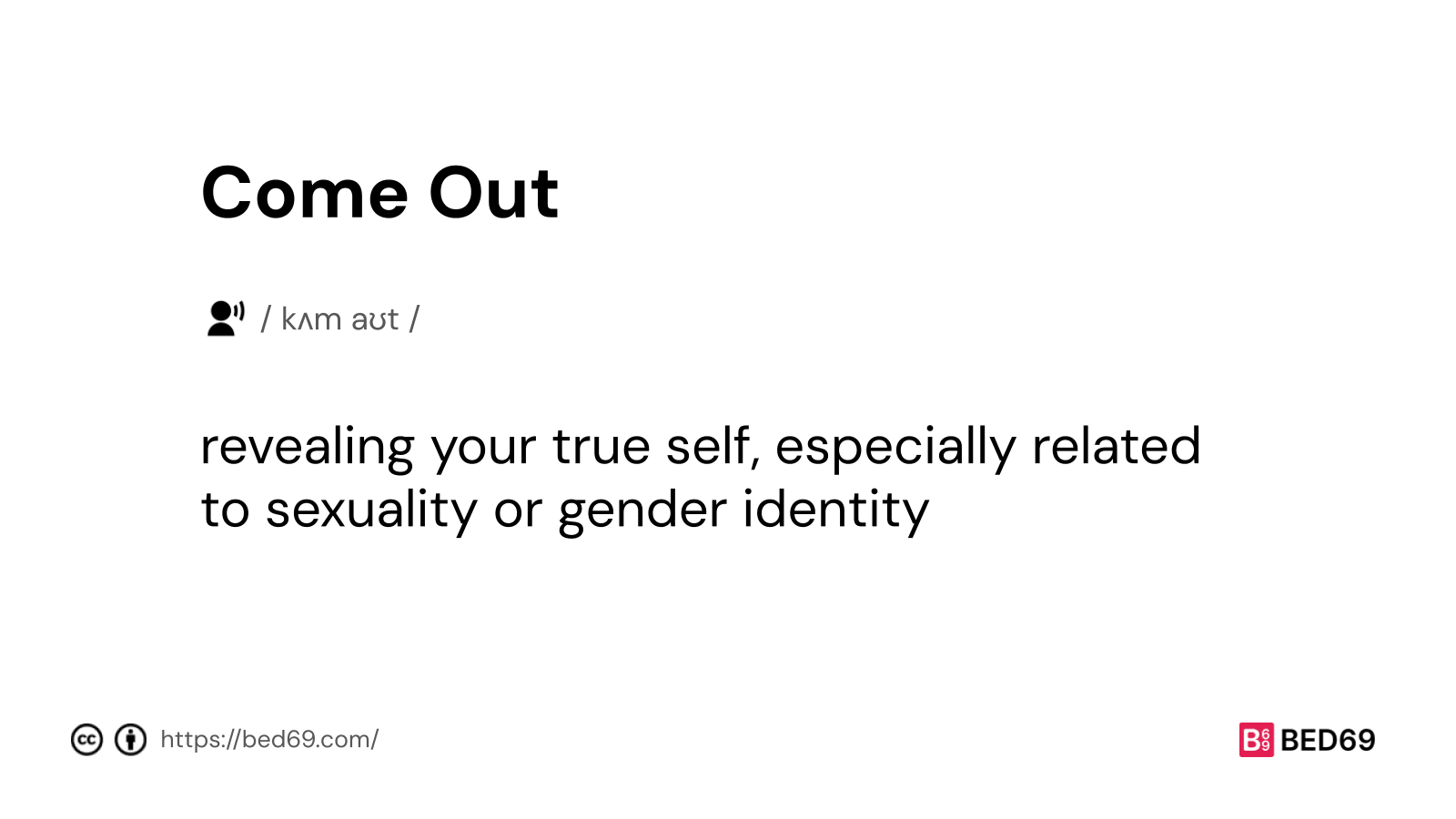What is Come Out?
“Come out” means revealing your sexual or gender identity to others after keeping it hidden. It symbolizes being open about who you truly are. It can be a challenging and risky process for many individuals.
Come Out pronunciation: / kʌm aʊt /

What challenges arise when coming out
When someone decides to come out, it can be daunting. The fear of rejection or misunderstanding from loved ones, friends, or colleagues can be overwhelming. This process often involves a deep emotional struggle and a fear of not being accepted for who you truly are.
Coming out can lead to strained relationships or even isolation from social circles. Many individuals worry about facing discrimination, bullying, or harassment after revealing their sexual or gender identity. The fear of losing support systems and the uncertainty of how others will react can create significant anxiety during this vulnerable time.
Despite the challenges, coming out can also bring a sense of relief and authenticity. It allows individuals to live openly and authentically, free from the weight of hiding a fundamental part of themselves. The journey to acceptance may be difficult, but for many, the freedom and self-acceptance that come with being open about their identity are invaluable.
How to navigate the process of coming out
Navigating the process of coming out can be overwhelming, but remember, you are not alone. Start by reflecting on your own feelings and understanding your identity. Choose a trusted person to confide in first, someone who you believe will support you. Take your time and go at your own pace; there’s no rush in this process.
Educate yourself about the LGBTQ+ community and seek out resources or support groups that can provide guidance. Practice what you want to say beforehand to feel more prepared. It’s essential to prioritize your safety and well-being, so trust your instincts on when and how to come out. Remember, it’s okay to set boundaries and take breaks if needed. Embrace your journey, and remember that your identity is valid and worthy of respect.
Explore other interesting terms:
